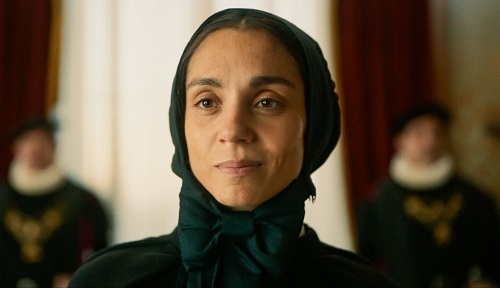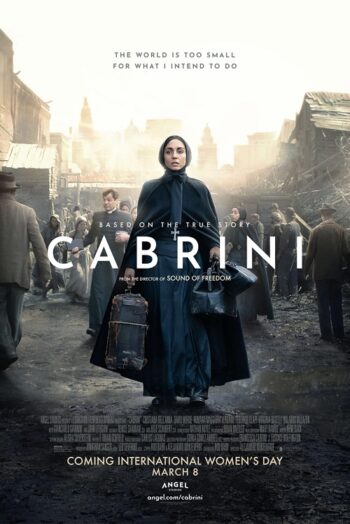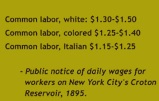Cabrini’s Legacy, An Empire of Hope
TORONTO – Angel Studios’ film, “Cabrini”, tells the true story of a 19th century Nun who overcame overt racial discrimination and fierce political resistance in her quest to create a network of hospitals and orphanages across the globe. Under the overbearing and watchful eye of the Vatican and New York’s ruling class, Francesca Cabrini started her mission [impossible] in New York’s notorious Five Points neighbourhood.
“Cabrini” is neither Catholic nor Feminist propaganda, nor does it solely target an Italian or Immigrant audience. It is simply a story about an individual who refused to accept defeat, in the name of creating – as Cabrini phrased it – an “Empire of Hope”. It is the story of America. Tough times make tough people. An adage that, in 2024, might sound trite to a generation whose society is collapsing and transforming (into what?) at an unprecedented rate.
But society is held together by the individuals courageous enough to take the first step. Someone once told me [after my mother had passed] that she had helped him and his family when he came to Canada in the late 60s. As a 20-year-old, she told him not to expect any help until he learned English and gave him the address to a tutor’s apartment. When he knocked on that tutor’s door he was met with a, “Let me guess, Mirella sent you”. It is this kind of initiative that Cabrini professed was the foundation to building a dream.
The movie introduces us to the fervent Cabrini (Cristiana Dell’Anna) as she zips through the Vatican’s corridors, frustrated that her letters to the Holy See have been ignored. Her request was to start a mission in China. The response: “Stay where you belong”. At the time, she “belonged” to the Missionary Sisters of the Sacred Heart of Jesus in Lombardy – but her desire was to spread the Gospel in the East. Eventually, Cabrini’s hard work and reputation was enough to convince Pope Leo XIII to grant her an overseas mission. The caveat: she was to start in the West – America.
She of course accepted the Mission, which was beset – to her surprise – by aggressive political resistance and blatant violations of human rights. This was a time in America when Italians were openly mocked for their skin colour; they were called Mongrels; social Darwinists said that Italians were the “missing link between chimps and humans”; public contracts excluded the hiring of “Italian labour”, and, the daily wages for Italians was a third category – beneath “White” and “Colored”.
Few people may be aware that, to date, the largest mass mob lynching in American history was the murder of 11 Italians on March 14th, 1891 (the New Orleans lynchings).
While the film has garnered widespread praise from audiences and critics alike, some have speculated that it is not likely to get an Oscar Nomination, due to it being a “faith-based” film, or not having the campaign dollars to push Academy voters. To that I say: who cares.
As Cabrini said herself, “It takes a ton of courage to be the people we’re meant to be”. Her sentiment was not rooted in the need to be accepted or included, but from the drive to make a difference… To earn acceptance.
And whether you’re religious or atheist, Cabrini’s story is a reminder that some have come before us, endured much worse, and paved the way for others.
That, more than any golden statue can offer, is Cabrini’s legacy. It is a movie worth seeing.
Massimo Volpe is a filmmaker and freelance writer from Toronto: he writes reviews of Italian films/content on Netflix






